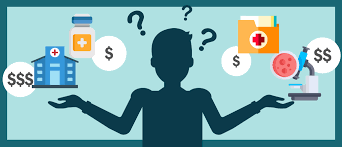Washington, D.C. – United Medical Center joins in the observance of Breast Cancer Awareness Month during the month of October. This is an annual campaign to raise awareness of breast cancer risks, the value of screening and early detection, and treatment options available to women and men who are diagnosed with one of the many forms of breast cancer.
Most importantly, breast cancer continues to affect residents of the District of Columbia, and in particular, residents of the District’s Ward 8 disproportionately.
Here are a few facts to ponder when it comes to breast cancer:
One in eight women in the United States has a chance of being diagnosed with breast cancer at some point in her life.
One in six breast cancer incidents occur in women aged 40-49.
An estimated 230,000 women will develop breast cancer this year.
However, nearly 90 percent of women diagnosed with breast cancer survive for at least five years, which is why early detection, screening, and personalized treatments are key when it comes to saving lives.
Nearly 41,000 die from the disease every year.
The District of Columbia leads the nation in both breast cancer incidence rates (153.1 per 100,000 vs. the U.S. average of 122.0) and breast cancer mortality rates (26.3 per 100,000 vs. the U.S. average of 21.5).
According to the District of Columbia Department of Health, breast cancer is the second most commonly diagnosed cancer in the District of Columbia. The District’s Ward 8 has the highest incidence of breast cancer (173.9 per 100,000).
Although white women in the District are more likely to be diagnosed with breast cancer than African American women, African American women are more likely to die from breast cancer than white women.
Raymond Tu, M.D., FACR, is chair of Radiology at United Medical Center, and his team of technologists and caring staff collectively lead efforts on breast cancer early detection, screening and treatment. He offers the following tips on how to prevent breast cancer:
Limit alcohol and don’t smoke. The more alcohol you drink, the greater your risk of developing breast cancer. Some studies also link smoking to increase risks of developing breast cancer.
Control your weight. Being overweight or obese increases the risk of breast cancer. This is especially true if obesity occurs later in life, particularly after menopause.
Be physically active. Physical activity can help you maintain a healthy weight, which, in turn, helps prevent breast cancer. The recommended activity is 150 minutes a week of moderate aerobic activity or 75 minutes of vigorous aerobic activity weekly.
Limit dose and duration of hormone therapy. Your doctor will balance your overall risk and benefits to replacement treatment.
“It is also important to understand your personal risks of being diagnosed with breast cancer,” says Dr. Tu. He offers these suggestions when considering the likelihood of getting breast cancer:
Know your genes and family history: Five to 10 percent of breast cancers are linked to gene mutations (commonly in BRCA1 & BRCA2) and 15 percent of women who get breast cancer have a family member with the disease.
More treatment isn’t always better: Your doctor will personalize your care. One size does not fit all.
Don’t overestimate risk: When a woman has breast cancer on one side, breast cancer can spread to other parts of the body, even to the other side.
“While there are many new developments in the treatment of breast cancer,” says Dr. Tu, “the best thing to do when it comes to breast cancer is early detection. The earlier we diagnose the cancer, the better the chances we can successfully treat it. Any woman, particularly those over 40, should be examined and be tested as recommended by your care provider.”
To schedule an appointment for a mammogram, call the United Medical Center 202-574-6141.
###
About United Medical Center: United Medical Center, an acute care hospital, offers community-based professional healthcare services to the residents of Ward 7, Ward 8 and bordering southern Prince George’s County communities. The hospital has hired new physicians including primary care doctors, cardiologists, urologists and other specialists. The hospital also continues to enhance the technologies that are used to help diagnose and treat illnesses. United Medical Center was the first hospital in the mid-Atlantic region to offer Microdose, a diagnostic device that provides the lowest dose of radiation for mammograms. For more information about United Medical Center, visit www.united-medicalcenter.com. Facebook: UnitedMedicalCenterDC. Twitter: @UMC_DC
Contact: David Thompson
Not-for-Profit Hospital Corporation
Main: (202) 574 – 5450
Cell: (301) 785 – 7670






